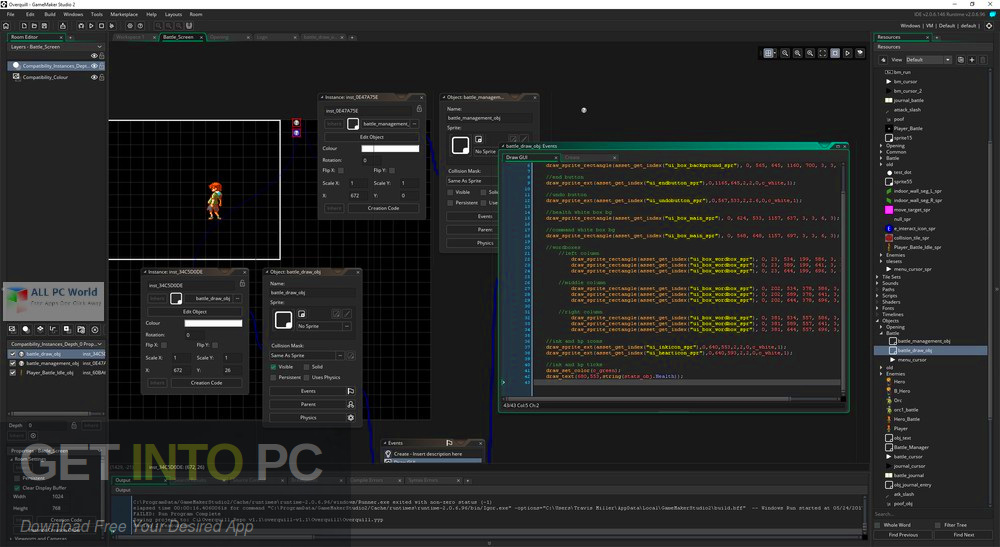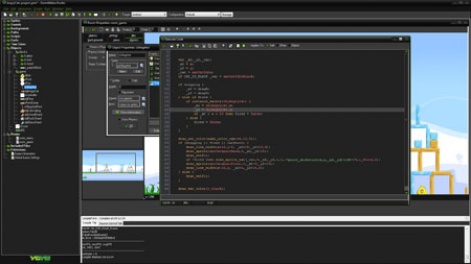
- How many computers cn i install game maker studio pro on software#
- How many computers cn i install game maker studio pro on code#
Game Maker is kind of notorious for being slow anyway, so it didn't take long for me to hit its limits. I am told this is more an issue with HTML5 and some browsers, but an issue nonetheless.Intro: Since I'm a pretty mediocre programmer, I often go for an easy solution to my coding problems rather than an efficient one. That's probably one of the reasons GM:S2 exists!Īlso, games exported for HTML5 tend to be slow and buggy.

How many computers cn i install game maker studio pro on software#
Back in the day, when Game Maker was brand new, it was actually pretty good and comparable to other software of the era. You can use them like templates to jumpstart a mockup and get things rolling even faster.Įverything about the native editor is just lacking. One of the greatest pros for GM:S is also its availability of sample files from the community. It feels like a strong entry point for anyone wanting to get into game or app development (yes - apps too - you can use this to make things other than games for sure).
How many computers cn i install game maker studio pro on code#
The ability to publish to so many different platforms without adjusting (much, if any) code is fantastic. It is, however, also a versatile tool for development overall. It helps to learn GML, the software's programming language, but not necessary at all. The easy drag and drop interface allows you to get a simple mockup running in under an hour.

Game Maker is fantastic for rapidly prototyping games, and this is what I feel is its greatest strength. This is a review for the original Game Maker Studio, not GM:S2.

I've also worked on two simple mobile games with GM:S. For example, while it has a function to check whether two segments of line are intersecting, it does not has a function to efficiently cast a ray from a point towards a directions and check which objects the ray intersects.Ĭomentários: I've used GM:S to create game prototypes for a few clients, who used those prototypes to hire a programmer for a different engine. Its standard library also lacks useful functions for geometry. GameMaker's scripting language (GML) is very bare bones. The final cost can stack pretty high depending on which platforms the game is planned to launch on. In other words, the final product can have low maintainability.Įach different export target has its own price. It's possible to export the game to many different platforms.Īlthough GMS indeed pushes towards being more productive, it also promotes recklessness. Shaders can be written in GLSL ES, which is industry standard. It's very easy to find and install extensions through its integrated marketplace, and extensions can be implemented in other languages instead of GML. GameMaker: Studio (GMS) is a very feature-complete suite and the included toolset (including the programming language, GML) pushes towards greater productivity. Yet, these people would still benefit from the overall very focused and productive toolset GMS offers to successfully finish their projects.

For artists, non-programmers and inexperienced programmers, I think GML would not be a no-go. After all, there are many fun games in the market about programming in Assembly. However, I think that a programmer can have fun with GameMaker if they see the software itself as a game and the limitations of the language as a challenge. But at such a point, it would be easier, cheaper and even more productive to abandon GMS altogether. It would be more productive for me to write the core of the game in other languages and interface it for GameMaker through an extension. As an experienced programmer, I grew very frustrated with GML. Without community pressure, GML is today about the same as it was in the first version of GM Studio I've tried, many years ago (version 6, before GM belonged to yoyo games). Despite that, a portion of GML community seem to think of such features as useless addendum. Also, there is a reason why more higher-level, industry standard, languages provide more features than low-level languages. It's factually easier to write many algorithms in C than in GML. pointers and structures) without proper replacements. Comentários: While it's true that GML is Turing Complete, and therefore it's technically possible to write any algorithm in it, the language gets rid of more "complicated" stuff from more low level-languages like C (e.g.


 0 kommentar(er)
0 kommentar(er)
